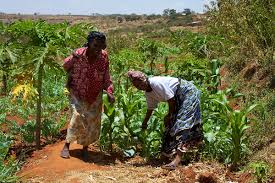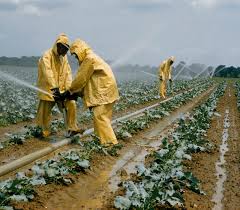This article is a continuation of article 4. In this article, the various theories of social change will be explained. After studying this article, the objectives listed below are expected to be achieved.
Meaning and Early Theories of Social Change
“Theory” has been described by Homans (1950) as the form in which the results of observation may be expressed. It is thus a generalized conceptualization, a body of logically interdependent generalized concepts with empirical reference (Parsons, 1954).
Parsons identified two functions of theory: description and analysis. Analysis involves causal explanation and the generation of general laws.
Social thinkers from antiquity have formulated broad theories of social change. Among early theories are those that base change on divine determination, holding that changes occur in the social world on the basis of man’s obedience or disobedience to the will of God.
Man was blessed for good deeds and punished for ill deeds, and changes for improvement or deterioration of his lot in his social world accordingly took place through divine determination.
Early Greek social philosophers explained change as development from the original nature of man; man was considered social by nature and changes evolved because of such nature.
Others felt that man, while born good as a creation of God, degenerates by his own actions. Thus, change was conceived as a departure or development of man from his original nature.
Social change through a series of developmental stages namely theological, metaphysical, and positive was the theory of Auguste Comte, the father of sociology.
Darwin’s theory of biological evolution influenced the thinking of sociologists like Gumplowicz, Ward, Sumner, Keller, and Ratzenhoffer, who applied such thinking to social change.
The various explanations of social change may be classified as belonging to theories of causation, theories of process, or theories of functional analysis.
Read Also: 18 Medicinal Health Benefits Of Maidenhair Tree (Ginkgo Biloba)
Theories of Causation and Their Agricultural Implications

These major theories can be grouped on the basis of four factors:
1. Geographic determinism: – Theories that explain social change in terms of some feature or features of the natural environment. Arnold Toynbee and Ellsworth Huntington are among the leading exponents of such theories.
2. Biological determinism: Theories that explain social change on the basis of traits or characteristics of the human organism. Included in such theories are those contained in doctrines of racial superiority and inferiority. These theories were popularized by writers, and Adolf Hitler followed this theory in his book Mein Kampf.
3. Economic determinism: Theories that consider economic factors such as production, demand, and supply as the bases of social change.
4. Cultural determinism: Theories that seek to explain social change as a result of some element or elements of cultural heritage. Max Weber and William F. Ogburn are two sociologists who expanded theories based on cultural determinism.
Theories of Process and Their Relevance to Rural Society
These theories of social change have been classified into:
1. Linear theories: conceive of social change as an unfolding line. The concept of evolution is the basic influence in the formulation of the linear theory. Auguste Comte, Lewis Henry Morgan, and Herbert Spencer are among the formulators of such evolutionary theories of social change.
Sociology actually began with evolutionary theory, and much of contemporary sociology bears the imprint of the 19th-century evolutionary theories.
Evolutionary theory in the 19th century drew heavily upon the biological sciences. Although few theorists went as far as Comte in drawing analogies between the “social organism” and its biological counterpart, the biological sciences clearly provided many models for the would-be science of society.
Karl Marx’s theory of the development of a “classless” society may also be classified under linear theories. Conflict theorists conceive of social organization as arising in response to a scarcity of desired resources.
For Marx, these resources were economic in nature the means of subsistence or property generally. Marx’s propositions concerning the historical development of class conflict derive from his observation of historical data and seem to fit the data well.
2. Cyclic theories: stress the undulating character of social change. Each phase of the cycle emerges from the previous phase and gives birth to the next phase.
Toynbee’s cyclic theory consisted of three phases: the state of social equilibrium, the transition to disequilibrium, and the disequilibrium leading to a new state of equilibrium.
3. The trend model: is another way of expressing the linear theory. Social change is characterised by an overall trend that exists in spite of minor fluctuations and variations. The trend of movement of society was described by Tönnies as the transition from Gemeinschaft to Gesellschaft, or communal to associational society.
The sacred traditional orientation of communal society in its trend gives way to associational society that is characterized by secularism, rationality, and a more pragmatic approach.
Read Also: 19 Medicinal Health Benefits Of Avens (Geum)
Theories of Functional Analysis and Agricultural Change

Social change is conceptualized as a social function. Functional analysis emerged from evolutionary theory, but Durkheim gave it its present form. The determination of function is necessary for the complete explanation of social phenomena.
To explain a social fact, Durkheim wrote, “It is not enough to show the cause on which it depends; we must also show the functions in the establishment of social order” (Durkheim, 1933).
Radcliffe-Brown (1949) later reasserted this Durkheimian conception when he argued that the function of any social phenomenon should be perceived in terms of the contribution of those phenomena to maintaining social order.
Rather than engage in the formulation of theories of social change, sociologists instead follow the approach of studying change as a class of social phenomena.
Following this approach, efforts are made to identify, describe, and measure social change to be able to identify the social and other environmental conditions that underlie it. The phenomena comprising social change are thus subjected to study and analysis as other social phenomena that are the object of sociological study.
Modernization Theory and Its Role in Agricultural Development
Interest in the concept of development flourished after the Second World War. This interest was more consciously influenced by the work of liberal economists, although the ideas of evolution, progress, and stages characteristic of earlier philosophers remained important elements in the understanding of the concept.
The work of economists became influential because the problem of development came to be specifically associated with the issue of alleviating the problems of non-Western societies, as these problems were perceived by Western nations and indigenous leaders.
In the post-war era, many of these nations were gaining political independence from their colonial masters, and it was understood that changes must occur within these societies so they could break out of the depressing cycle of unemployment, illiteracy, diseases, poverty, and so on.
In short, they must be set on the path of “development,” with the assistance of theory and empirical studies of their problems.
Modernization is not a fixed condition. It is often seen as a period a period of transition during which a society sheds its “traditional” characteristics and becomes dominated by “modern” types of institutions and action. The functionalist theory of social change is the theoretical foundation of all the modernization perspectives.
Do you have any questions, suggestions, or contributions? If so, please feel free to use the comment box below to share your thoughts. We also encourage you to kindly share this information with others who might benefit from it. Since we can’t reach everyone at once, we truly appreciate your help in spreading the word. Thank you so much for your support and for sharing!

